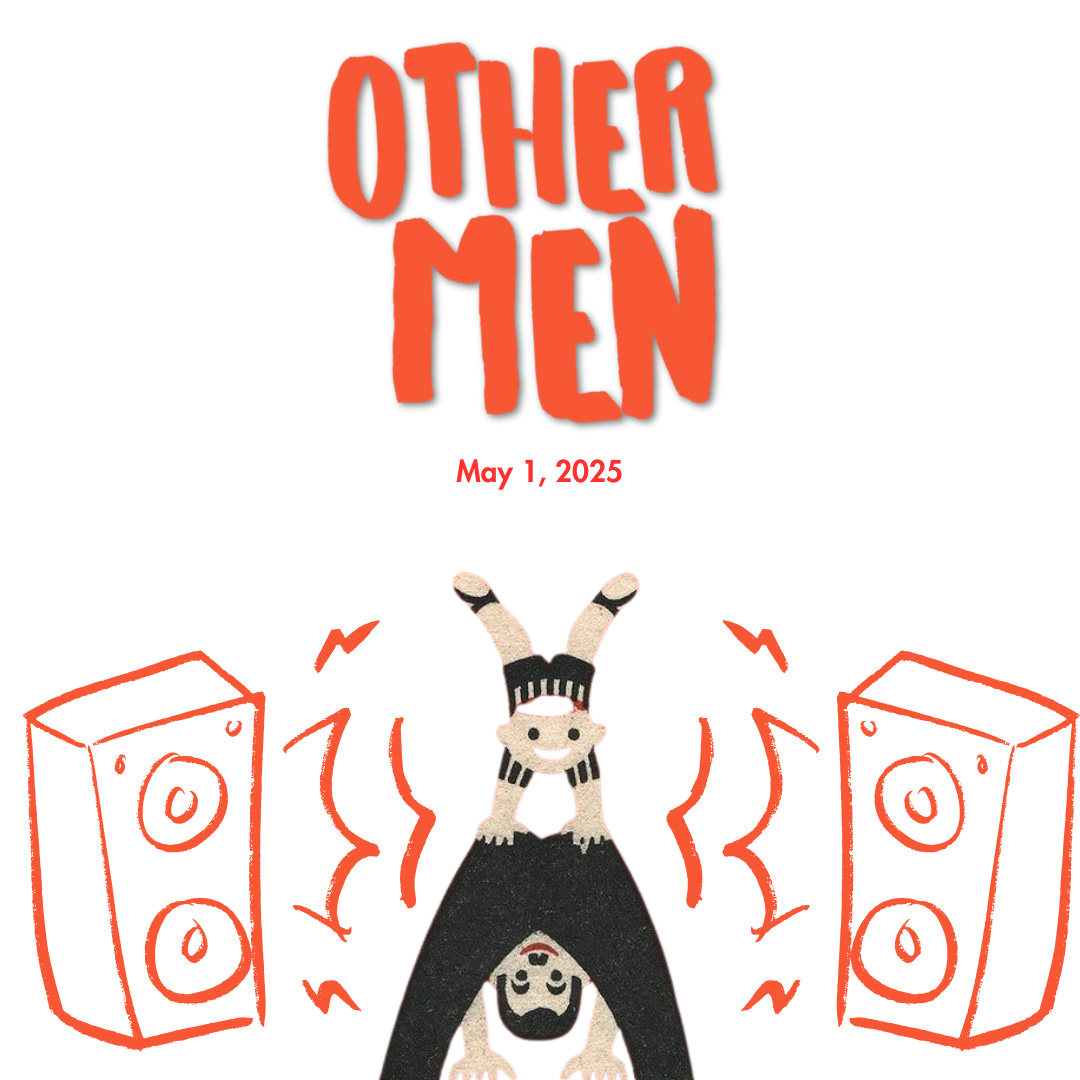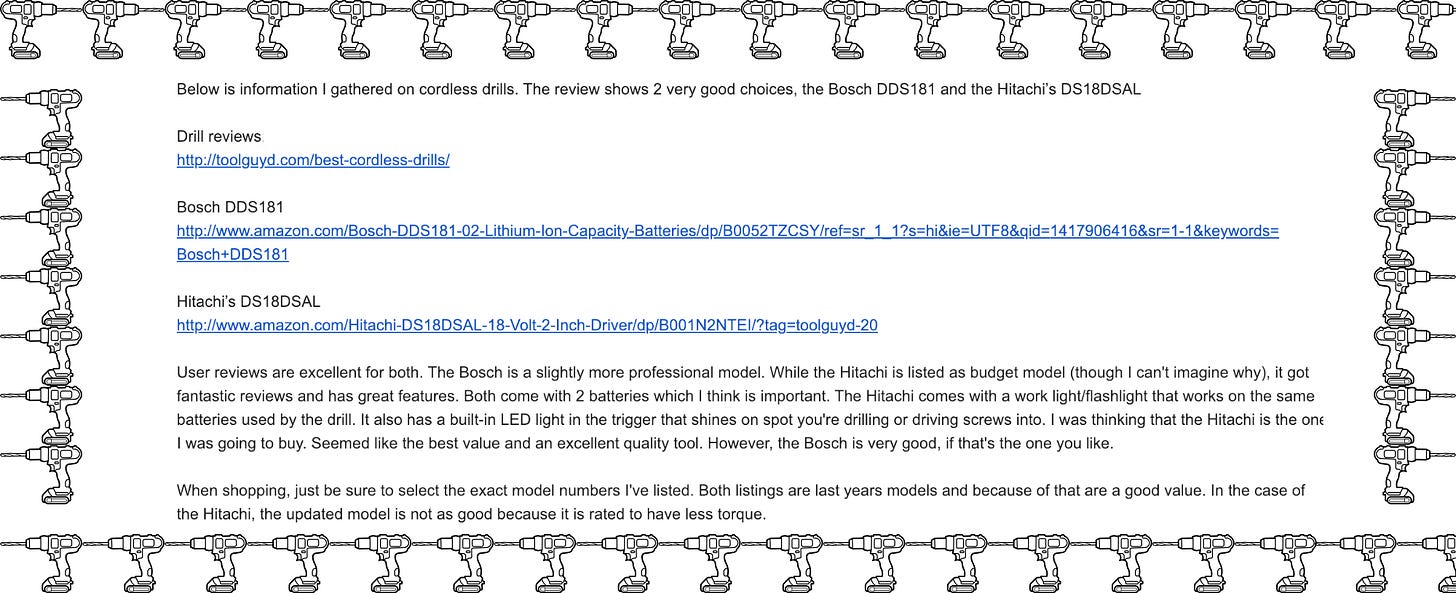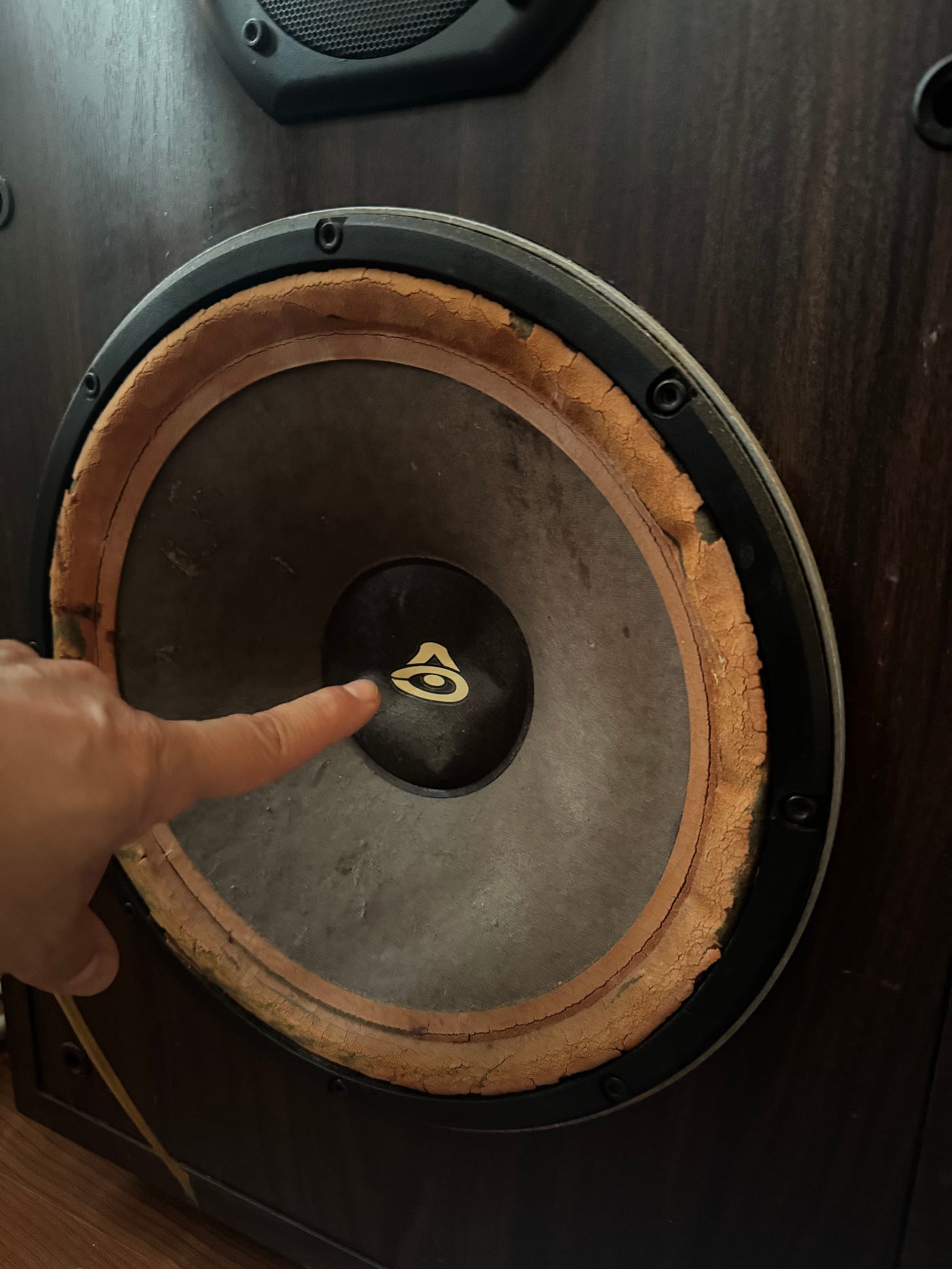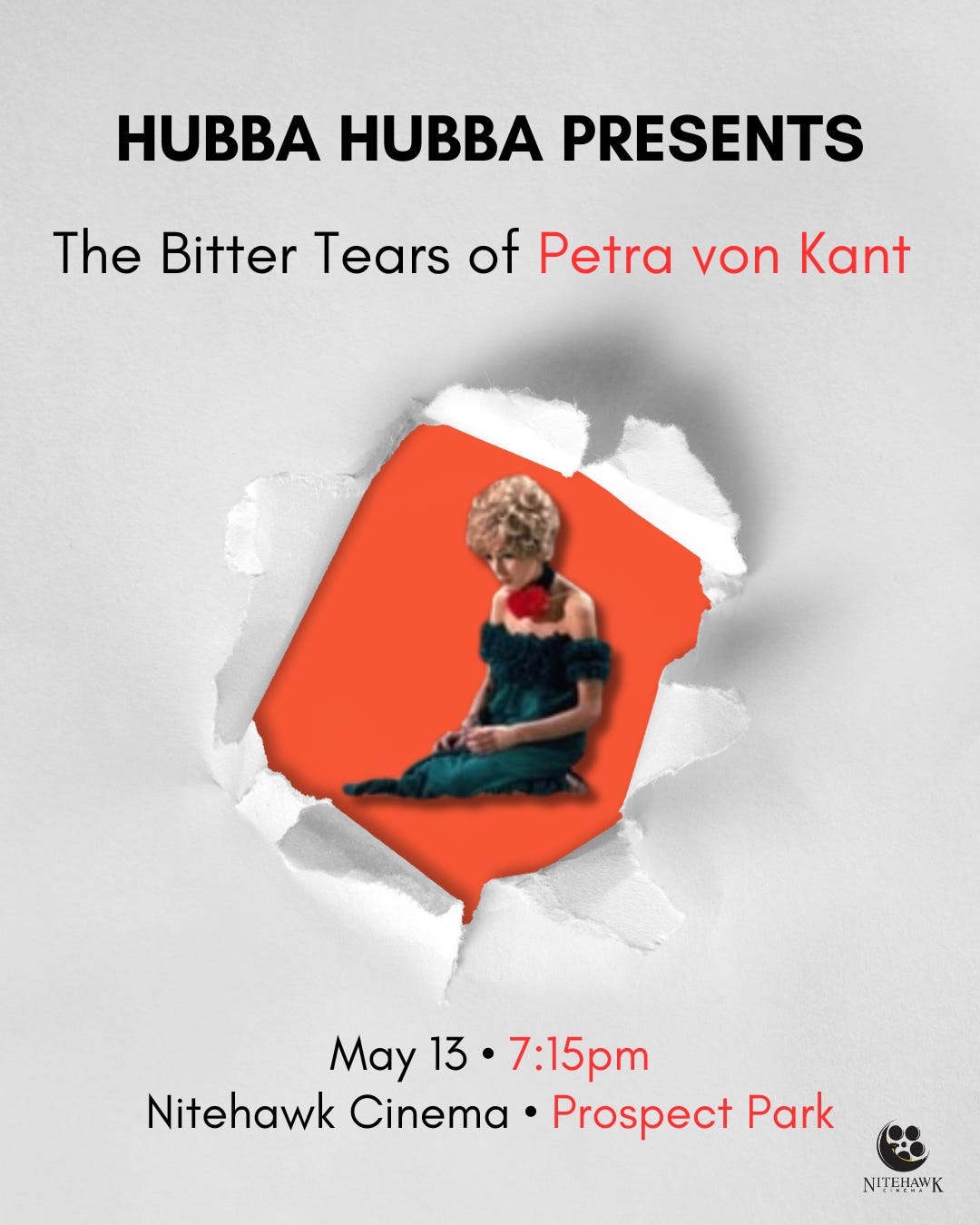“By two years old, I had already learned two fathers. One addict. One sea captain. My birth father was Jon, a name like him, just a man. The captain had two names: Robert for the merchant marine, and rounder Bob for his intimates. Bob, so close to Dad.
Both taught me how to watch someone leave and not chase them.”
-Melissa Febos, “Abandon Me”
As a member of the Dead Dad Club, early May is when I have to file an annual report about what I’ve learned in managing paternal grief over the last 12 months. Since the bereavement that hit on a spring day over 30 years ago, I’ve been navigating the seas of malaise, so my compass is less a tool of precision and more a sentimental object—battered, a little off, but it still points somewhere.
Some years, I drift. Others, I row like hell.
This year’s report is about the rowing.
In middle school, there was a sliding doors period where I could’ve ended up a tech wiz. The catalyst was the desire to become a DJ. Tech-y nutrients stemmed from Crutchfield, J&R catalogs, lots of tinkering with whatever stereo equipment I could find. When I turned 14, my dad bought me Cerwin-Vega speakers with 12-inch woofers (a critical component). I test-drove the bass with Common’s first album, Can I Borrow a Dollar? (he went by Common Sense at the time). In a birthday card, my dad surprised me with one more addition to my electronics—his turntable.
12-inch woofers, a record player, and peach fuzz advice were the last gifts he gave me.
I can't say whether I stopped technology restoration because my dad died. Recreational time plus overpriced dime bags was how I spent the next year—so, my man, everything is on the table. I did hold onto those Cerwin-Vega's through countless identity shifts, interrupted by purge periods—sparked by grief and caffeine. Instead of weeping or journaling, a jittery morning would lead me to sell relics of my former self. A death, a breakup, a patch of hair loss—something would crack the dam, and I'd fixate on a material identity to dismantle.
Around 30, I decided the speakers had to go. As I rounded a new decade, insecure about my life, I remember feeling bitter that I was left with no inheritance. I felt lost; sad that I didn’t have my dad’s counsel.
The Cerwin-Vega’s left my life around the time Emma entered it. One reason I liked her was how handy she was—Emma, the gearhead, the tinkerer. A few months in, I met her parents. Her dad, Bill, made it clear where she got it from. He wasn’t just handy. He was the master tinkerer.
Bill was also part of the Dead Dad Club.
Like me, he suffered an early, tragic loss. Members of the DDC wear an invisible cologne—only recognizable to fellow initiates. Or maybe it’s in the eyes: that quiet, scanning look of the fatherless, always window-shopping for guidance. I think of that scene in Django Unchained—when Franco Nero asks Jamie Foxx about his name, and Foxx says, “The D is silent.” Franco pauses, nods, and says, “I know,” before walking off. The thing is, Franco Nero knows this because he played Django in the original film, so it’s a clever bit of casting, minor meta-storytelling, and, well, I’ve lost you. I get it—you think that’s a weird reference to make. But hey, Bill would’ve liked it.
Bill bought me a DVD of his favorite movie, Near Dark, one Christmas. It’s gross but not scary (I never told him that it wasn’t the best movie ever made). I showed him Black Christmas. It’s terrifying but not gross. (he wasn’t thrilled—his loss because it’s the best movie ever made), but he was enthused when I told him that Emma and I were seeing The Third Man (truly, the best movie ever made). I always wanted a brother or parent who was into horror movies, someone who didn’t make me feel out of touch because he, too, liked Ealing studio comedies from the 50s—you know, dorky shit like that.
Lest you think it was all vampires and old British haha’s, it wasn’t. Bill challenged my career decisions. He also encouraged me. He would call me after a visit and say how much he loved our time together or apologize for saying the word “fuck” too much. If I needed any tinkering advice—oh, forget it, Bill was there in spades.
Emma and Bill were big music heads, holding onto record collections and analog equipment. Their enthusiastic bond awakened my 14-year-old self. I searched for the Cerwin-Vega model I had abandoned. When I found a used pair in Northern Virginia, I showed them to Bill. He was very impressed. The price was reasonable, but he told me to use a vacuum to pull out the dent in the woofer.
Part of the purchase was tied to an upcoming move. After years in Washington, D.C., I was heading back to New York. Emma was bound for New Orleans—to pursue New Orleans. All of it felt like a harbinger. We made it work for over a year but were in different life stages. When we finally broke up, we both agreed: we needed distance. Real, sustained distance—no texts, no check-ins—until reconnecting was emotionally safe. Looking back (through the fog of that time), I’m still unsure how we did it, but we did. Contact stayed minimal. I also stopped speaking to Emma’s parents—not because I wanted to, but because it felt right and respectful.
Bill texted me a year after our breakup, “We think of you often.” I kid you not—it was on Valentine’s Day. Through tears, I told him the same.
A few years later, I lost all my messages and contacts in a fire—well, not a literal fire. Having abandoned all my tech savvy at the age of 14, I neglected to backup my phone, and kaboom, everything was wiped when my phone stopped working.
When I got a new phone, it took me a while to reconnect iMessages to my computer. But when they finally started syncing, messages came flooding in. In that batch was a message from Bill, another “We think of you often.” I replied. Then came a confused response: “Is this Mark?”
Turns out it was an old thread, unearthed from the archive. Bill kept his reply restrained and formal. Objectively, I understood. But it hurt. I imagined Emma had a new boo, and my jealousy extended beyond the usual “this dude and her are bunking”—it meant that her father had a new “son” to dote on.
In my lifetime, I’ve had a few circumstantial dads—the ones you don’t choose but who show up anyway. Every spring, my dreams point to the anniversary of losing my dad, and this year, Bill has shown up in my dreams more times than I can count.
As a DDC member, after a while, you forget the feeling of saying “dad.” Not the word itself but the way it feels when you use it as an emotional request. When you no longer employ it, you become a part of a diaspora, further separated from a former tongue you once knew. But the longing to say it never goes away.
During a caffeinated morning, I got rid of the Near Dark DVD and other gifts Bill bought me. I didn’t vocalize the change, but I might as well have said, “Whatever, you’re not my dad.”
I’ve kept the Cerwin-Vega speakers, though. There’s still a dent in the woofer.
Adios, ciao ciao, byeeeeeeeee,
Mark✌🏼
Hubba Hubba is back!
Join our team along with with the magnificent
on Tuesday, May 13th at Nitehawk Cinema-Prospect with what may be the most intoxicatingly stylized love story of the 1970s—The Bitter Tears of Petra von Kanton 35mm!🎟️ GET YOUR TIX HERE 🎟️









